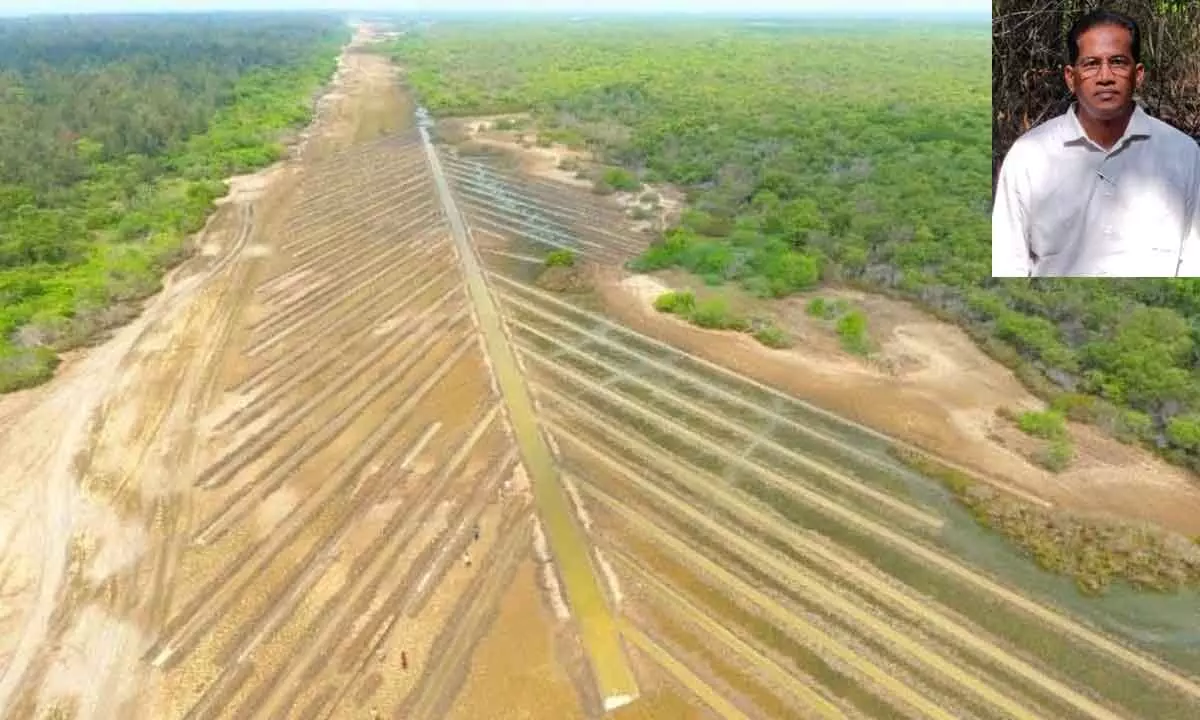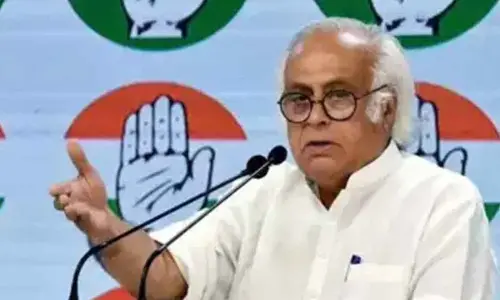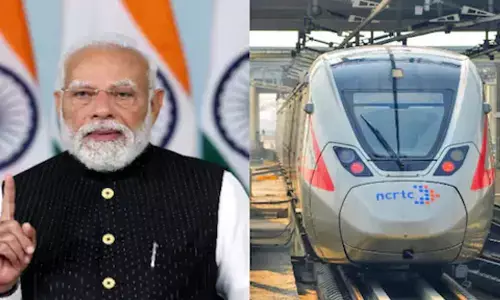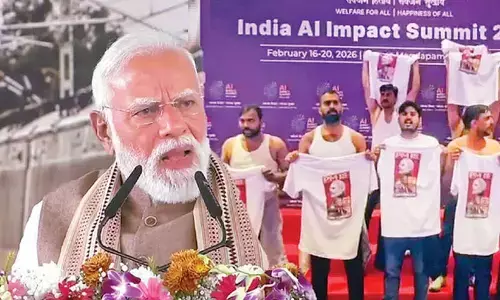Amalapuram: Fishbone model channels for mangrove expansion

Fishbone model channels prepared in Kandikuppa Reserve Forest, MV Prasada Rao, District Forest Officer
A large-scale mangrove species planting programme will be organised on June 5
Amalapuram (Konaseema District) : On the occasion of World Environment Day on June 5, a large-scale mangrove species planting programme will be organised from 10-30 am to 11-30 am. Forest department officials are making arrangements to conduct the programme by following the guidelines of the Central government.
MP, MLA, local public representatives as well as local fishermen and other communities, who depend on Mada forests for livelihoods will be invited. Arrangements are being made for live streaming of Prime Minister Narendra Modi’s speech on MISHTI (Mangrove Initiative for Shoreline Habitats & Tangible Incomes).
MISHTI is instrumental in mitigating the effects of cyclones and providing nature-based solutions against climate change. Globally, mangrove forests are declining at a rate of about one per cent annually. But India recorded a net increase of 946 sq km, between 2017 and 2021.
75 places are selected to conduct the MISHTI programme is mangroves in the Coringa and Kandikuppa areas of the joint East Godavari district. The MISHTI plantation programme in the mangroves of the Kandikuppa Reserve Forest area of Katrenikona mandal under the Konaseema district is getting attention.
Channels have been specially arranged for the cultivation of mangroves in the shape of fish bone in an area of five hectares. The plantation will be taken by digging feeder/ field channels in fish bone design to facilitate tidal water flow and seedlings will be planted on the slope of channels at the rate of 1,600 per hectare.
Water from a creek is diverted to a target site through feeders and field channels, converting even barren land with high saline content into fertile land that supports the survival of mangrove plant species.
The fishbone model irrigation system has helped to restore mangroves in Krishna Wildlife Sanctuary (KWS) over 6,000 hectares since 2006. Even in Kandikuppa area, in the past, channels were established in the fishbone model and this method gave good results.
MV Prasada Rao, District Forest Officer said while talking to ‘The Hans India’, “Notified Mangroves forest area available in Konaseema District is 6,500 hectares. In addition, about 2,000 hectares are available outside reserve forests.”




